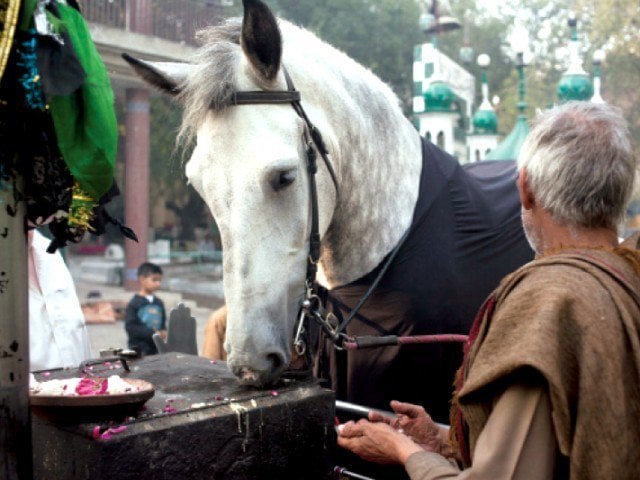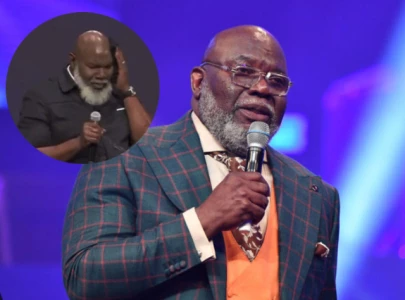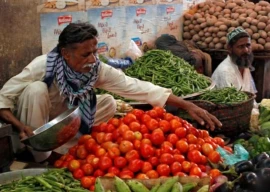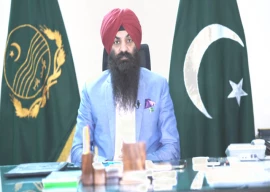
The Walled City has been associated with the Zuljinnah procession for centuries, says Yahya Husnain, the custodian of Katra Wali Shah imambargah.
Dozens of processions are taken in the Walled City during the first 10 days of Muharram, including the seven processions on 7th Muharram.
Husnain’s family takes care of the Zuljinnah and prepare it for the procession. “Some of the families in a similar role take the Zuljinnah around the city for exercise and familiarity with the route...but we do not longer have the resources to do so,” he says.
Husnain says he inherited guardianship of the Zuljinnah and will pass it on to his children.
“One of my sons will lead the procession this year,” he says.
Zuljinnah’s role in epic of Karbala is highlighted in the majalis on 9th Muharram. According to one legend, the horse killed 60 enemies of the Imam and wept at his passing.
Agha Shah Hussain Qizilbash’s family started the Zuljinnah tradition in the Walled City.
Hussain says Syed Ghulam Ali Shah carried a wooden tazia on his head from Gamay Shah to Kucha Pir Gilanian. Hidayat Ali Raza Khan Qizilbash, the nawab, was touched and allowed an annual procession. “The first procession took the route taken by Shah,” he said.

The main procession on 9th Muharram starts from Nisar Haveli. It is named after one of Hidayat’s three sons, Nisar Ali Khan Qizilbash.
“There are more than 100 imambargahs in the Walled City. Each has its own history,” he says.
Thousands of devotees visit Haveli Alif Shah in Delhi Gate for the 7th Muharram procession. Syed Ahmed Abbas, its caretaker, says his family has been associated with the procession for generations. “Ours was among the few families who received a licence to take out processions in 1869 under the Police of India Act. We had been in charge of the procession long before that,” Abbas says.
The procession takes one of the longest routes; it starts from Choona Mandi Chowk and travels to Rang Mahal Chowk through Bansanwala Bazaar. Later, it moves towards Mohalla Shian, stopping at imambargahs along the way, including Katra Wali Shah. The procession ends at Wazir Khan Chowk.
“Thousands of people come to Muharram processions despite the security concerns,” said Hussain says. “The processions are joined by Sunnis as well as Shias. The walk brings them together in remembrance.”
This view is shared by Husnain who points out that Katra Wali Shah is located in a Sunni-dominated area.
He said, “The Zuljinnah procession from Katra Wali Shah is sometimes called the Zuljinnah of the Sunnis because they participate in it equally.”
Published in The Express Tribune, October 19th, 2015.

1723278472-0/BeFunky-collage-(4)1723278472-0-165x106.webp)


1719564405-0/BeFunky-collage-(19)1719564405-0-165x106.webp)












COMMENTS
Comments are moderated and generally will be posted if they are on-topic and not abusive.
For more information, please see our Comments FAQ